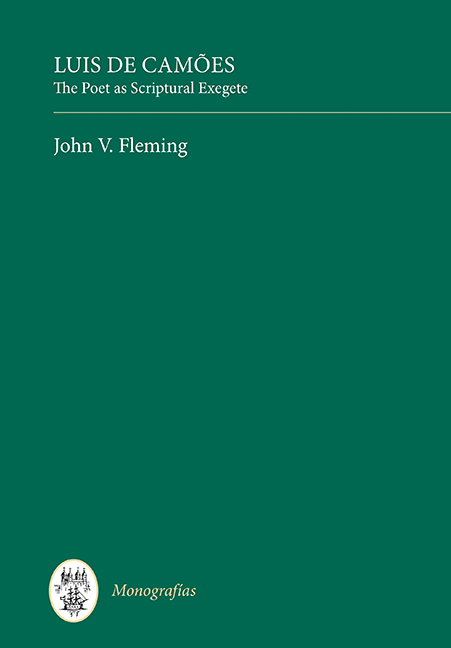4 - The Conversión of Juan Boscán
Published online by Cambridge University Press: 15 September 2017
Summary
We now face a slight scholarly embarrassment. How is it that literary history has thus far failed to identify the obvious vernacular “source” of Camões's poetic inspiration in this extraordinary work? Sôbolos rios is a poem about poetry, and also about poets—subjects treated in a fashion at once responsibly traditional and highly original. One of Camões's principal themes is mutability, the decay of matter, the dissolution of hope, the brevity of human happiness, the impermanence and fragility of life itself. The summary statement of the third décima—vi que todos os danos/ se causavam das mudanças/ e as mudanças dos anos)—is a comprehensive lament for the vanity of human wishes. He writes in, from, and about Babylon. But his pessimism is measurably heightened by the exegetical originality of his interpretation of “Zion,” which at least for the moment offers little relief, as it is to be compared, he says, to time past (tempo passado). From the new and very bleak perspective from which the poet begins, even the superficially happy memories (lembranças contentes) of the past are illusory, insubstantial, and fleeting dreams. “I saw that all the past ‘good’ was not pleasure, but pain.”
Now, among the things that pass away are poets and poetry itself. Were there to be a sixth book of the Consolation of Philosophy there would be no poems in it, for “Boethius” would by then have reached the ethical status of his Hercules. The poetry, as Lady Philosophy makes clear, is a kind of alluring garment, a come-on, a sugar-coated pill needed by those who as yet lack the robust moral health to face the naked truth of prose. We speak of certain modern writers as having a “total commitment” to their art. In a world without religious transcendence—the burden or the comfort of the pre-modern Christian poet— art, politics, philosophy, patriotism, and many other things might be regarded as terminal goods. The serious palinode, which we find even in somber theologians like Augustine and which characterizes such great poets as Jean de Meun, Chaucer, and Camões himself, is not a frequent topic of modern literature. The commitment of Luís de Camões to his poetry was intense but contingent, as a reading of the poetry in its full corpus will demonstrate.
- Type
- Chapter
- Information
- Luis de CamõesThe Poet as Scriptural Exegete, pp. 83 - 104Publisher: Boydell & BrewerPrint publication year: 2017

